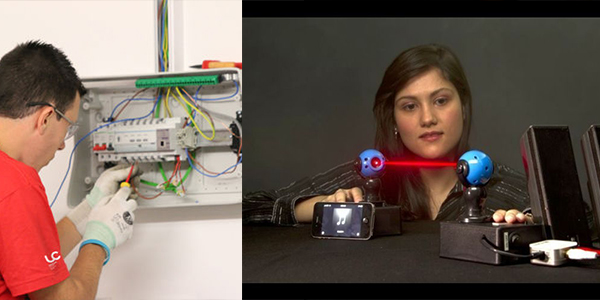What would have happened to human life without the outbreak of electricity? Can we today imagine a world without the use of electrical energy? Surely not. Electricity is so much integrated in our daily lives that it has been extended to a branch of engineering itself. Electrical and Electronics Engineering is that branch of engineering & technology which deals with the design & applications of circuits & equipment’s for electricity generation & distribution.
In the duration of study students also learn to design electronic circuits & to develop control systems. The course also involves the study of electromagnetism apart from electricity & electronics. Electrical and Electronics Engineering also includes various subdivisions like power, control, Signal processing and Telecommunications.
Also check : Career in Computer Science Engineering
Eligibility of Electrical and Electronics Engineering:
To appear in any of the entrance examination of undergraduate engineering courses, it becomes compulsory that the student must have passed the higher secondary school certificate examinations with the subjects specialized in Physics, Chemistry & Maths. However some courses demand the need of Biology also which may or may not be considered. The percentage requirements are conditional and they vary according to the university or college sometimes even depending on the state which you apply.
Duration:
Generally, any Bachelor of Engineering in India will span a duration of 4 full academic years which will include 8 semesters i.e; 2 semesters each year at the end of which a university theory cum practical examination for the respective subjects will be conducted. At the end of the final year a final project becomes compulsory, internships and mini projects which are to be done by the student vary from one university to the other. As far as the studying of subjects are concerned, it depends on the syllabus of each university that how much main subjects it allots per semester but a minimum of five subjects is expected to be written as theory examination conducted at the end of every semester.
Admission Process:
Option 1:
Merit seats- admission through Common Entrance Test conducted by respective state examination board/ college / university.
Option 2 :
Payment seats offered by the respective Colleges/Universities.
The above are the options through which an engineering admission could be done, you will have to select the most appropriate college/university in which you want to get into and then obtain the college details, relevant contact phone number and visit the institution for further enquirers.
Fees:
Each university has its own fees structure though, we would like to present to you a generalized scenario. Private universities will cost you around 150,000 to 300,000 (1.5 to 3 lakh) rupees per student per year . Public university on an average will cost between 75,000 to 150,000 rupees per student per year. Living expenses will cost you depending on the location of the university like in cities, it will cost you more and your style of living. Generally, this expenditure may cost you around Rs.1 lac excluding your tuition fees.
Also check : Engineering in Aeronautical
Syllabus & Subjects Studied:
- Optimization Techniques.
- Object Oriented Software Engineering.
- Application of Power Electronics to Power Systems.
- Instrumentation Engineering.
- Advanced Computer Networks.
Best Colleges/Universities:
- IITs- Bombay, Madras, Varanasi.
- NITs-Trichy, Uttaranchal.
- Institute of Technology – Nirma University.
- BITS-Pilani.
- Jamia Millia Islamia – Faculty of Engineering and Technology.
Jobs after completing this course:
Sector / Industry:
- Natural gas plants.
- Production plants.
- Manufacturing units.
- Hydro-Electricity sector.
- Manufacturing Plants.
- Power Corporations.
Salary:
In India, the average salary of an Electrical and Electronics Engineering graduated as a fresher is expected to be more or less around from Rs.2.5 lakh to Rs.5 lakh per annum.
Careers after completing this course
- Chief Engineers.
- Workshop Manager.
- Operations Manager.
- Verification Engineer.
- Engineering Technologist.
- Development and Test Engineers.
Courses after completing this course
- Master Degree in Electrical & Electronics Engineering.
- Research options are also available.





